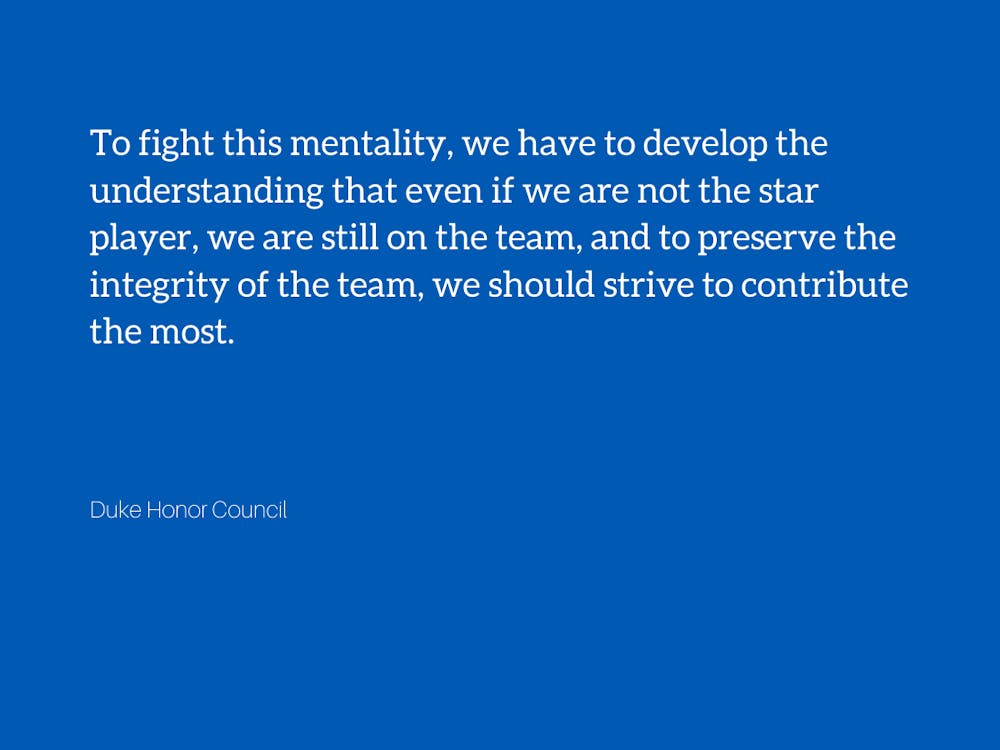I opened my phone and go through Instagram on the bus to my 8:30 Chemistry lecture in Gross Hall. I catch up with some friends before finally stumbling upon the Duke Men’s Basketball Instagram. Upon viewing their story, I find that they have been working through drills since early in the morning. Returning to their page later in the day confirms that they have been practicing, performing strength training, and much more. Even though I am only a first-semester freshman, I find it hard to imagine an entire schedule of courses combined with the load of an athletic team. Upon a deeper investigation into the culture of sports teams, I find that integrity is the backbone that holds them together.
Integrity is usually associated with academics. From adhering to the Duke Community Standard to following course policies, Duke students hear about integrity and equate it to an academic definition. However, you’ll find that Duke Athletics values integrity as one of their fundamental pillars. At the Honor Council event in October, “Coach P: Integrity and Sports,” our Women’s Basketball Coach Joanne P. McCallie discussed how she looks for strong character qualities in her players and recruits. You don’t just want the best player on your team, you want to find a player that is going to have the highest ceiling. The most important player on the team is not the best but the individual that can help the team grow the most, and often, integrity is the highlighting quality of this individual.
Even though we are not all Division I Athletes, we have all been in group projects. Whether it is a group project or an athletic team, the fundamental components of the group are the same. There are traditional group roles such as a Captain or Group Leader; however, there are also individuals termed Hitchhikers and Couch Potatoes. Hitchhikers count on you to act in a self-sacrificing manner, while Couch Potatoes are individuals who perform the facade of contributing to the group, but in reality, they are there just for the show. These individuals bring down the efficiency of the group, so eliminating these qualities are imperative for the success of the collective group.
Many of the students at Duke were Group Leaders at their high schools, so when they arrived on campus, they were looking forward to working in an environment where contributions are equally split. Theoretically, groups at Duke should function at peak efficiency; however, that is not the case. At Duke, some students are beginning to exhibit Coach Potato and Hitchhiker qualities. So what is happening to these former leaders?
In our Duke Community, students find themselves surrounded by a community of driven-scholars. In high school, we were all the top dog. However, Duke forces to face the reality that this is no longer the case. As a result, students adjust and assign themselves as intellectually superior or inferior. This mindset is destructive to the Duke Community because students block themselves out of the growth mindset.
To fight this mentality, we have to develop the understanding that even if we are not the star player, we are still on the team, and to preserve the integrity of the team, we should strive to contribute the most.
This column was written by Devan Desai, a first-year Trinity student. Honor Council’s column runs on alternate Tuesdays.
Get The Chronicle straight to your inbox
Signup for our weekly newsletter. Cancel at any time.

